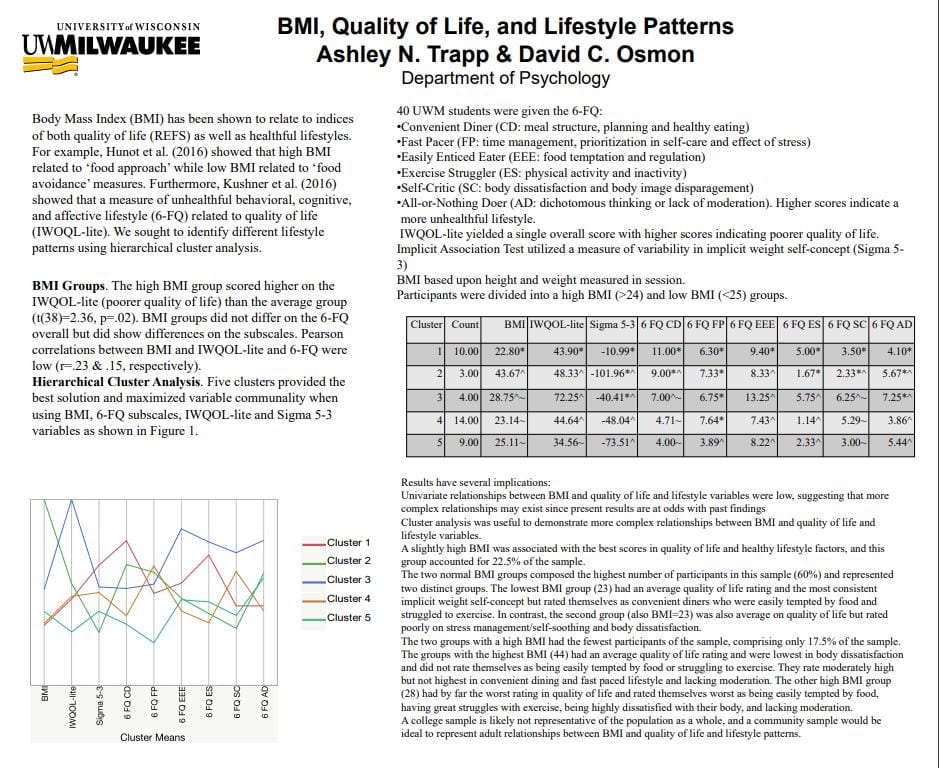Ashley Trapp, “Explicit and Implicit Aspects of Dietary Behavior”
Mentor: David Osmon, Psychology
We investigated the relationship of explicit and implicit thoughts in dietary behavior such as eating behavior, food choice, and dietary intake using questionnaires about dietary behavior as well as biologic measures (weight, height, caliper measure of body fat). Dietary behavior has been investigated using only explicit measures of thoughts and actions using self-report dietary practices. Recent implicit cognition work suggests that we create explanations for our actions only after the behavior has occurred. Frequently, there is a mismatch between these explanations, our actual thoughts, and actions prior to behaviors of interest. We expected a similar mismatch regarding dietary behavior and believe that the greater the mismatch the more likely the participant is to engage in unhealthful dietary practices. Therefore, we wanted to examine both explicit and implicit aspects of dietary behavior. There were 40 participants which were divided into a high BMI (>24) and low BMI (<25) groups. The 6-Factor Questionnaire was administered which includes Convenient Diner, Fast Pacer, Easily Enticed Easter, Exercise Struggler, Self-Critic, and All-or-Nothing Doer. High scores indicate how unhealthy the participants’ lifestyle is. The Impact of Weight on Quality of Life-lite questionnaire was used as an overall measure of quality of life. It was found that the relationship between BMI, quality of life, and lifestyle variables was complex. Cluster analysis found five groups with differing patterns of these variables. It was concluded that a college sample isn’t a great representation of the population as a whole and that a community sample would be more ideal to represent adult relationships between BMI, quality of life, and lifestyle patterns.
Click the thumbnail below to open the full sized poster in a new tab.

Your written presentation supplementing your poster is very helpful to understanding your research. It would have been helpful to talk with you in person to better understand many of the acronyms and abbreviations in the poster.